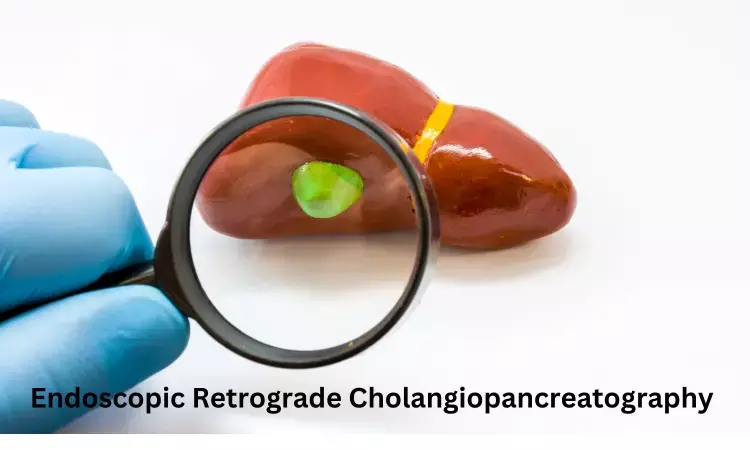- Home
- Medical news & Guidelines
- Anesthesiology
- Cardiology and CTVS
- Critical Care
- Dentistry
- Dermatology
- Diabetes and Endocrinology
- ENT
- Gastroenterology
- Medicine
- Nephrology
- Neurology
- Obstretics-Gynaecology
- Oncology
- Ophthalmology
- Orthopaedics
- Pediatrics-Neonatology
- Psychiatry
- Pulmonology
- Radiology
- Surgery
- Urology
- Laboratory Medicine
- Diet
- Nursing
- Paramedical
- Physiotherapy
- Health news
- Fact Check
- Bone Health Fact Check
- Brain Health Fact Check
- Cancer Related Fact Check
- Child Care Fact Check
- Dental and oral health fact check
- Diabetes and metabolic health fact check
- Diet and Nutrition Fact Check
- Eye and ENT Care Fact Check
- Fitness fact check
- Gut health fact check
- Heart health fact check
- Kidney health fact check
- Medical education fact check
- Men's health fact check
- Respiratory fact check
- Skin and hair care fact check
- Vaccine and Immunization fact check
- Women's health fact check
- AYUSH
- State News
- Andaman and Nicobar Islands
- Andhra Pradesh
- Arunachal Pradesh
- Assam
- Bihar
- Chandigarh
- Chattisgarh
- Dadra and Nagar Haveli
- Daman and Diu
- Delhi
- Goa
- Gujarat
- Haryana
- Himachal Pradesh
- Jammu & Kashmir
- Jharkhand
- Karnataka
- Kerala
- Ladakh
- Lakshadweep
- Madhya Pradesh
- Maharashtra
- Manipur
- Meghalaya
- Mizoram
- Nagaland
- Odisha
- Puducherry
- Punjab
- Rajasthan
- Sikkim
- Tamil Nadu
- Telangana
- Tripura
- Uttar Pradesh
- Uttrakhand
- West Bengal
- Medical Education
- Industry
Single-use duodenoscopes safe and effective for use in ERCPs

Endoscopic retrograde cholangiopancreatography (ERCP) is a procedure that combines upper gastrointestinal (GI) endoscopy and x-rays to treat problems of the bile and pancreatic ducts. Doctors state they prefer ERCP to diagnose problems of the bile and pancreatic ducts if they expect to treat problems during the procedure. However its safety is a question as it’s a invasive procedure.
A new study in the journal Endoscopy reveals that endoscopists in several academic medical centers over the globe with varying levels of experience who used the first marketed single-use duodenoscope had good ERCP procedural success and reported high performance ratings for this device.
Study included 61 endoscopists at 22 academic centers in 11 countries who performed ERCP procedures in adult patients aged ≥ 18. Outcomes included ERCP completion for the intended indication, rate of crossover to a reusable endoscope, device performance ratings, and serious adverse events (SAEs).
The key findings of the study are
• A total of 551 patients, 236 (42.8 %) were aged > 65, 281 (51.0 %) were men, and 256 (46.5 %) had their procedure as an inpatient.
• ERCPs included 196 (35.6 %) with American Society for Gastrointestinal Endoscopy complexity of grades 3–4. A total of 529 ERCPs (96.0 %) were completed: 503 (91.3 %) using only the single-use duodenoscope, and 26 (4.7 %) with crossover to a reusable endoscope.
• There were 22 ERCPs (4.0 %) that were not completed, of which 11 (2.0 %) included a crossover and 11 (2.0 %) were aborted cases (no crossover).
• Median ERCP completion time was 24.0 minutes. Median overall satisfaction with the single-use duodenoscope was 8.0 (scale of 1 to 10 [best]).
• SAEs were reported in 43 patients (7.8 %), including 17 (3.1 %) who developed post-ERCP pancreatitis.
Researchers concluded that “In academic medical centers over a wide geographic distribution, endoscopists with varying levels of experience using the first marketed single-use duodenoscope had good ERCP procedural success and reported high performance ratings for this device.”
Reference: Marco J. Bruno, Torsten Beyna, David Carr-Locke et al; Global prospective case series of ERCPs using a single-use duodenoscope; Endoscopy, DOI: 10.1055/a-2131-7180.
MSc. Neuroscience
Niveditha Subramani a MSc. Neuroscience (Faculty of Medicine) graduate from University of Madras, Chennai. Ambitious in Neuro research having worked in motor diseases and neuron apoptosis is interested in more of new upcoming research and their advancement in field of medicine. She has an engrossed skill towards writing and her roles at Medical dialogue include Sr. Content writer. Her news covers new discoveries and updates in field of medicine. She can be reached at editorial@medicaldialogues.in
Dr Kamal Kant Kohli-MBBS, DTCD- a chest specialist with more than 30 years of practice and a flair for writing clinical articles, Dr Kamal Kant Kohli joined Medical Dialogues as a Chief Editor of Medical News. Besides writing articles, as an editor, he proofreads and verifies all the medical content published on Medical Dialogues including those coming from journals, studies,medical conferences,guidelines etc. Email: drkohli@medicaldialogues.in. Contact no. 011-43720751


